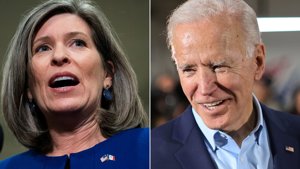
Judge Blocks Trump’s USIP Takeover
A federal judge blocked President Trump’s dismantling of the U.S. Institute of Peace, ruling the administration’s actions unconstitutional and unlawful.
Judge Overrules Trump Order to Strip Peace Institute
A U.S. federal court has struck down the Trump administration’s attempt to dismantle the United States Institute of Peace (USIP), issuing a decisive ruling that deemed the removal of its leadership and the seizure of its property by a newly created federal department unlawful and void. The decision, issued by U.S. District Court Judge Beryl Howell, marks a major legal setback for the administration’s efforts to curtail the role of the congressionally funded peace-promoting agency.
The ruling comes in response to a lawsuit filed by the Institute in March, seeking to halt what it described as an “unlawful dismantling” of its operations by the executive branch. The complaint argued that the takeover violated both statutory protections and the Institute’s mandate to promote conflict resolution and international peace efforts.
Judge Howell wrote that the administration “removed the Institute’s leadership, including plaintiff Board members and its president in contravention of statutory limitations,” and subsequently deployed personnel from the Department of Government Efficiency (DOGE) to seize control of the organization’s headquarters on March 17.
Following this takeover, a new president was installed, the Institute’s property was transferred to the General Services Administration, and nearly all staff were terminated—measures Howell deemed were carried out by “illegitimately-installed leaders who lacked legal authority.”
Legal and Constitutional Repercussions
Established in 1984 under President Ronald Reagan, the U.S. Institute of Peace is an independent agency funded by Congress to promote diplomacy and conflict mitigation worldwide. Judge Howell emphasized that the Institute’s existence and leadership structure are protected by law, and that presidential overreach in this instance constituted a breach of constitutional boundaries.
“Congress’s restrictions on the President’s removal power of USIP Board members are squarely constitutional,” Howell stated. She added that the actions taken by the administration to meet its goal of reducing the USIP to its “statutory minimums” undermined the broader mission that Congress had established for the organization.
The ruling called the administration’s conduct a “gross usurpation of power” and criticized the trauma inflicted on the Institute’s leadership and staff. Howell concluded that the executive actions had disregarded decades of bipartisan support and ongoing appropriations endorsed by seven presidents, including Trump during his first term.
White House Defends Executive Authority
The White House responded with defiance, pledging to appeal the decision. Press secretary Anna Kelly stated, “The United States Institute of Peace has existed for 40 years on a $50 million annual budget, but failed to deliver peace.” She defended Trump’s executive order as an effort to eliminate what she termed a “failed, useless entity.”
Kelly added that the court’s ruling infringes on the separation of powers and that the administration would not accept the judiciary’s attempt to override presidential authority. In March, the administration described the ousted Institute leadership as “rogue bureaucrats” who engaged in a standoff with DOGE agents requiring police intervention.
With the ruling now in place, the administration has 30 days to file an appeal. The outcome of the case could set precedent on executive authority, congressional oversight, and the autonomy of independent federal agencies. As the legal process unfolds, the future of the Institute of Peace—and the boundaries of presidential power—remain closely watched.






